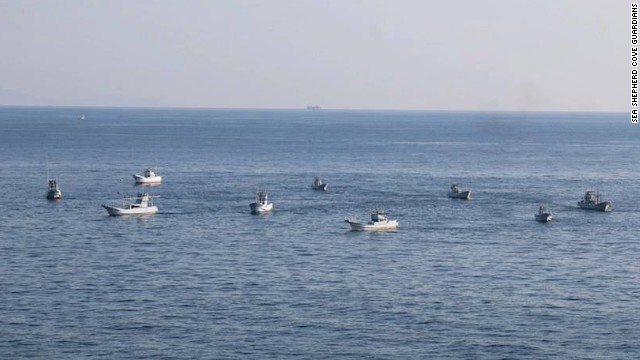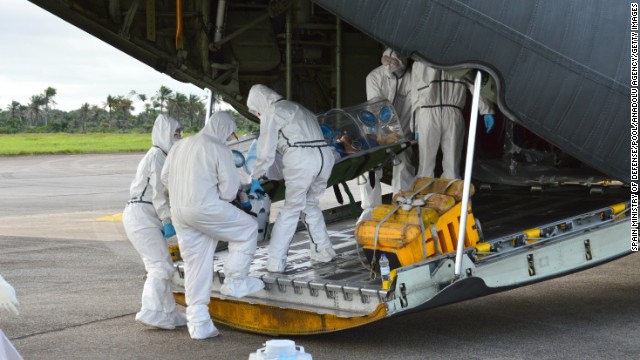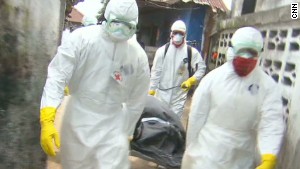The Defence authorities have confirmed
the killing of the leader of Boko Haram, Abubakar Shekau, during one of
the four encounters with insurgents in Kodunga, Borno State between
September 12 and 17, 2014.
The Director of Defence Information,
Maj. Gen. Chris Olukolade, said during a news conference in Abuja on
Wednesday, that the corpse of the insurgents’ leader was identified by
the people of Kodunga.
He said that Shekau whose real name was Mohammed Bashir had used other names like Abacha Abdullahi Geidam and Damasack.
Olukolade illustrated the Defence
authorities claim with pictures of the bullet-ridden corpse of Shekau
and a video of the battle in which he was killed.
Four days ago, the Cameroon Concord
reported that the Cameroonian troops killed Shekau during a cross
border aerial bombardment of his hideout in Nigeria on Saturday.
To prove the killing, the newspaper also
published photographs of the bearded Shekau whom it said then usually
appeared in videos as the leader of Boko Haram.
But Olukolade dismissed the claim that Shekau was killed by Cameroonian security forces within Nigeria.
“There was no raid whatsoever by
Cameroon or any foreign forces in any part of Nigeria’s territory in
pursuit of terrorists as claimed in some reports allegedly quoting
Cameroon authorities,” he had said.
He had also claimed in a tweet on
Wednesday last week that troops who repelled an attack by insurgents in
Kodunga, captured a high ranking terrorist leader who was being
treated in military medical facility.
On Tuesday, a journalist said to be a
close ally of Boko Haram, Ahmad Salkida, said he had it on “authority”
that Shekau was hale and hearty.
Writing on his Twitter handle, Salkida,
who is on self-exile in the United Arab Emirates, claimed that Shekau
was not the one in the pictures of a corpse that trended on Monday on
social media after they were published by the Cameroon Concord.
“Mark my words: I have it on authority
that Shekau is well and alive. The pictures going round are not that of
the person who torments us with his group,” the journalist added.
The spokesperson for the Department of State Service had in May claimed that “the real Abubakar Shekau had been taken out.”
“Boko Haram has become a franchise;
anybody can assume and lay claim to any name. What I know is that the
original Abubakar Shekau is dead; the person claiming to be the national
leader now is not the original Abubakar Shekau.
“If security sources tell you that somebody is dead, you don’t have to come out and doubt that,” Ogar said.
A former spokesman for the Joint Task
Force in the North-East, Sagir Musa, had in a statement in August 2013,
also said that Shekau might have been killed during a battle with
troops in June last year.
But during the news conference on
Wednesday, the defence spokesman said that many top commanders of Boko
Haram were also killed in the four battles against the insurgents
between September 12 and 17.
Olukolade added that the military was
determined to eliminate anybody, who claims to be Shekau, a name
which, he said had become a brand for the leader of the insurgents.
He said, “Nigerian troops have been
conducting coordinated air and land operations in furtherance of efforts
at containing the terrorists in the North -East. . Somehow, it became
apparent that the terrorists, in continuation of their campaign of
terror, were determined to take over communities around Maiduguri, which
is their prime target.
“There was, therefore, the need to
ensure that communities such as Kodunga were protected. It is noteworthy
that the terrorists made no less than four attempts between September
12 and 17 to violate the security and enter Kodunga to perpetrate their
atrocities. Air and land forces were subsequently deployed to handle the
situation.
“The convoy of combat vehicles typical
of terrorists’ mission that involved their top commanders was engaged
by land and air forces. Several of the terrorists, including some of
their commanders, lost their lives in the encounters which lasted an
average of about five hours each. The troops captured some of the
terrorists and their equipment.
“In the course of those encounters, one
Mohammed Bashir, who has been acting or posing on videos as the deceased
Abubakar Shekau, the eccentric character known as leader of the group,
died.
“Since the name Shekau has become a
brand name for the terrorists’ leader, the Nigerian military remains
resolute to serve justice to anyone who assumes that designation or
title as well as all terrorists that seek to violate the freedom and
territory of Nigeria.
“On restoring normalcy after the
encounters, inhabitants of the community who were victims of their
activities corroborated information on the identity of Bashir Mohammed
alias Abubakar Shekau, alias Abacha Abdullahi Geidam alias Damasack,
etc.
“Indeed, the recent devastation on the
leadership of the insurgents is attributable to the renewed commitment
to the mission of eradicating terrorism in our country.”
Olukolade also said that 135 insurgents surrendered their weapons to troops in Borno and Adamawa states on Tuesday evening.
He added that 88 of them surrendered at Mairiga/Buniyadi while another set of 45 were arrested around Mubi-Michika.
The Defence spokesman said the insurgents were undergoing interrogation in strict compliance with standard procedure.
“A total of 135 terrorists yesterday
(Tuesday) evening surrendered along with their equipment to troops
around the Biu Local Government Area. A group of 88 submitted themselves
at Mairiga/Buni – Yadi while another group of 45 terrorists were taken
in around Mubi – Michika. They are all being interrogated and processed
in conformity with the dictates of standard best practices,” he added.
The Defence Headquarters had earlier
said that 10 insurgents surrendered at Kawuri on Monday and another five
at Konduga on Saturday.
This brings the total number of insurgents who have surrendered after the Kodunga battles to 150.
Investigation by The PUNCH on Wednesday
revealed that troops were intensifying a house-to-house search in
Madagali, Gulak, Michika, Bazza and other communities in Adamawa
State for 70 fleeing insurgents.
It was gathered that six members of the sect were caught by troops at a refugee centre in Yola on Wednesday.
FG’ll celebrate B’Haram surrender not Shekau’s death – Maku
Meanwhile, the Minister of Information,
Labaran Maku, said on Wednesday that the Federal Government was more
interested in Boko Haram members laying down their arms than in the
said death of Shekau.
Maku told journalists after the
weekly Federal Executive Council meeting in Abuja on Wednesday that
the government was not interested in celebrating the death of the
terrorist.
“The Federal Government would be happier
if the Boko Haram leader and his group laid down their weapons and
embraced peace,” he said.
The minister added, “Government has a
responsibility to respect human rights unlike members of the Boko Haram
sect who have thrown away all sympathy for human lives and are prepared
to kill people just for killing’s sake.
“For us it is immaterial if the leader
of the terrorist group is killed or not. We want them to drop their
weapons and embrace peace. We want them to drop their weapons, stop
killing their parents and innocent people and accept peace.”
Culled from The Punch








